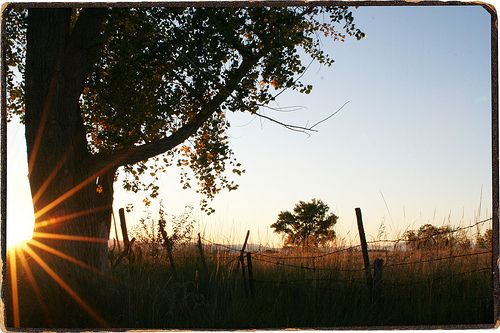
I have been a bad parent. I only did what I knew, but I can no longer deny it: I never gave them a good home. I never made them feel useful or showed them any respect.
Today I dropped off hundreds of former possessions at the Goodwill shop. Maybe they’ll find adoptive parents who will be better than I have. I don’t even remember ever deciding to take them on as my dependents. They just happened. But somewhere along the line, all those things became stuff, and lost my respect.
Most of us live amidst stuff. We do have a few things too — well-used, well-enjoyed, and well-respected items that have an established place in our lives. But most of it is stuff.
Stuff makes us feel bad. It fills the mind with fading hopes about what we might one day do with it, taunts us with our obvious inability to manage it, and gives us the ominous sense that we’re losing track of something crucial, either in the physical mess of stuff itself, or in the mental mess it creates in our heads.
I don’t want stuff anymore, only things.
My black, square coffee table in the center of my living room is a thing.
My set of puke-green plates, which sit on the shelf above the nice white plates I actually use, are stuff.
My stainless steel water bottle, only four weeks old but already a close companion, is a thing.
My Beatles Jigsaw puzzle, which I got as a gift and immediately loved the idea of — but never assembled — is stuff.
I donated about a hundred pounds of stuff today. Sometimes it’s sad to get rid of some items, particularly if you had high hopes for them, if they were a gift, or if you associate them with someone you miss.
But how much sadder is it to hoard something in your home for years for some inane psychological reason, without actually putting it to use or giving it a proper place?
If I’m going to own an item, the least I could do is be a good parent to it. And the most fundamental responsibility of a parent is to give your children a decent home.
Stuff doesn’t usually have a home. Items of stuff are transients, surviving day-by-day in a temporary stack somewhere, leaning sadly against a garage wall, or sleeping in the darkness of a junk drawer, never sure of their fate or purpose. A particularly fortunate piece might get a chance to hibernate in a half-full cardboard box in the storage room, with some other hard-luck outcasts.
Nor do they have jobs. Just ask my broken acoustic guitar. Sorry, pal, but as a chronically disabled possession I just can’t keep you busy here. But feel free to mill about the closet behind the well-employed shirts and pants. I’m too insecure and sentimental to boot you out, but maybe one day, by some unlikely turn of events, you’ll become relevant again. Read More




 I'm David, and Raptitude is a blog about getting better at being human -- things we can do to improve our lives today.
I'm David, and Raptitude is a blog about getting better at being human -- things we can do to improve our lives today.
Thank you for the post, I've only started suspecting I have adhd close to my 40's. I've come to the same conclusion as you did about self discipline, but I have trouble organising my life. Could you you share some of the things that worked for you and what kind...